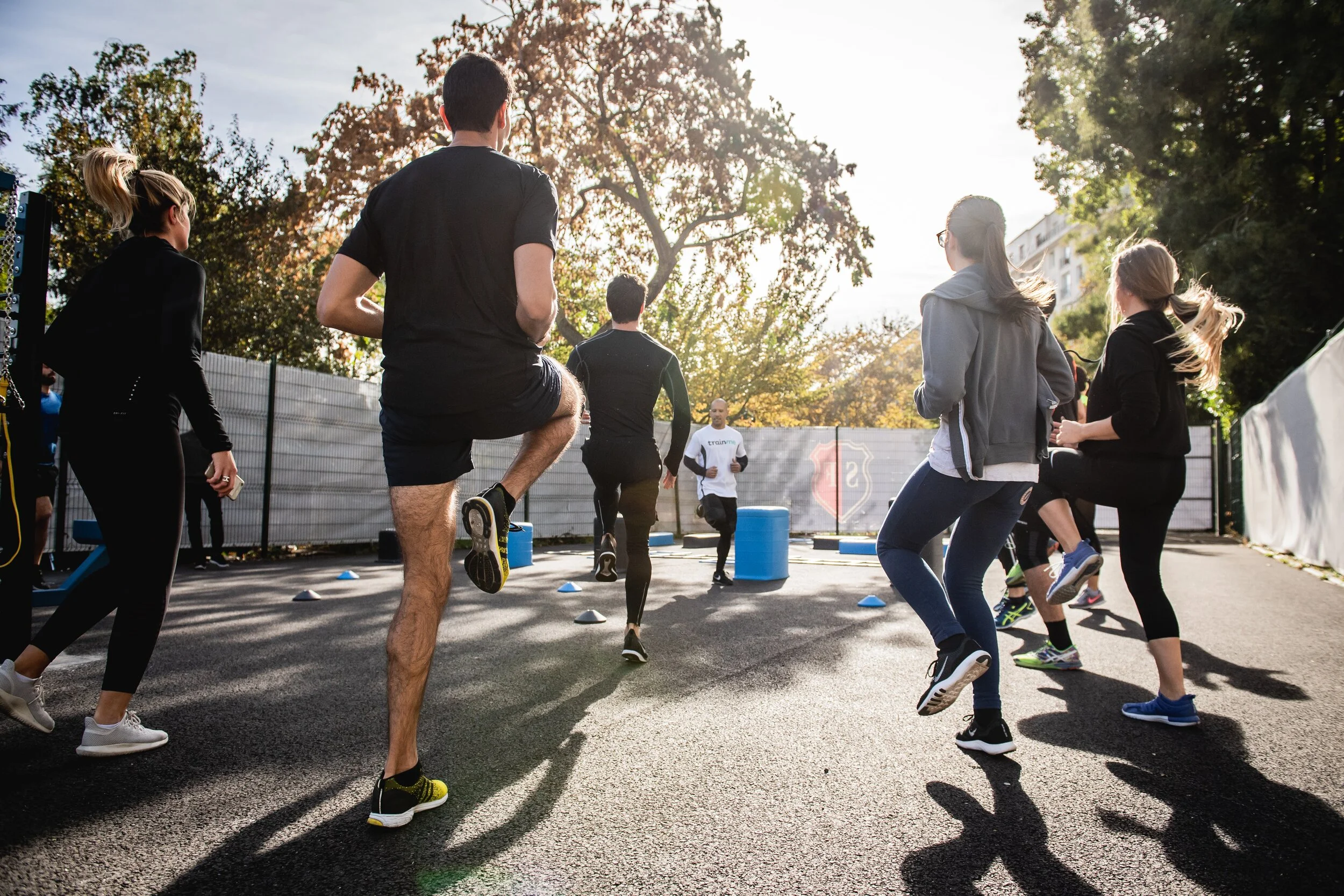Why Exercise?
Reading time: 3 minutes
We have been told for decades that exercise is important. Over the years Jane Fonda, Lizzie (The Green Goddess), Mr Motivator and now Joe Wicks have been tasked with getting us to move more. So why do many of us find it difficult to achieve the government advised (minimum!) 150 minutes activity each week? We all have so much going on in our lives that exercise inevitably gets pushed down the ‘To Do’ list, or perhaps it feels like it is a chore that we have to suffer. It’s only when we find a form of exercise that we enjoy and stick with that we appreciate how good it makes us feel and we are motivated to keep it up! We have been told the benefits of exercise, but have you considered how they could affect your life in a positive way? I want to go through some of these now to instil the importance of movement.
Increased heart strength
Your heart is like any other muscle in the body, it needs to be strengthened. As you increase your cardiovascular endurance through something like brisk walking your heart becomes stronger and can pump more blood with each beat. It therefore doesn’t have to beat as fast to get oxygen to your muscles and your resting heart rate reduces. Heart disease is the most common cause of heart attack and is the single biggest killer of both and men and women worldwide. In the UK there are more than 100,000 hospital admissions each year due to heart attacks: that's one every five minutes. The stronger you can make your heart the better!
Increased lung capacity
Increasing the amount of cardiovascular exercise you do will improve the strength of your lungs and increase the amount of oxygen you can take in each breath. The stronger your lungs become, the LESS out of breath you will get doing routine activities like playing football with your children, running for a bus or walking up a hill with your golf clubs. There are lots of ways we can gauge ‘fitness’ but most people view being able to control your breathing during exercise as a big one. How would it improve your life if you didn’t have to worry about being breathless?
Increased muscle, ligament and tendon strength
A major reason many people train is to look better. Growing or toning muscles or losing a few inches around our waist feels great and it’s nice to look in the mirror and feel happy with our appearance. However, strength is so much more than aesthetics. Training decreases your risk of injury as it improves the strength of the muscles, tendons, ligaments and bones. Stronger muscles and tendons help hold the body in ideal alignment, protecting the body when moving or under impact and improving our posture. A controlled, full body strength training programme will help prevent muscle imbalances which can often lead to injury. Many of us will have experienced a pulled hamstring, tweaked back muscle or hurt shoulder. The stronger your body becomes, the less likely this is to happen.
Increased muscle mass
By exercising (dependant on the type of exercise you do) your muscle mass will increase. Muscle tissue is metabolically more active and burns more calories than fat tissue. The more muscle you have, the bigger your resting energy expenditure, which means that your body burns more calories “while doing nothing”.
Improved bone strength
When we work our muscles they pull on our bones, putting stress on them and stimulating bone strengthening. As we become older it is vital that we maintain a good level of bone strength. The NHS reports that over 3 million people in the UK are affected by osteoporosis. It is also important to note that women are much more likely to suffer from this condition than men. This is why it is so important for females to incorporate strength training into their fitness routine.
Stress Relief
When we are physically active it has a huge effect on how we feel. Movement increases the production of our brain's feel-good neurotransmitters, AKA ‘endorphins’. Often known as the ‘Runners High’, any aerobic activity, such as tennis or a brisk walk can contribute to this same feeling. Exercise can help us to forget the day’s irritations as we have been concentrating on our body’s movements. How often do you come home from work carrying baggage from you last meeting of the day? How valuable would it be to put this stress behind you? Endorphins also improve the prioritizing functions of the brain. After exercise, your ability to sort out priorities improves, allowing you to block out distractions and better concentrate on the task at hand.
Improved Sleep
Numerous studies have looked into the connection between exercise and sleep. Specifically moderate-to-vigorous exercise can increase sleep quality for adults by reducing the time it takes to fall asleep and decreasing the amount of time spent lying awake at night. Additionally, physical activity can help alleviate daytime sleepiness and, for some people, reduce the need for sleep medications. For those who struggle with sleep, it can be very debilitating so using exercise to help improve how many hours we get each night can make a huge difference to how we feel each day.
In summary
We are bombarded with reasons why we should exercise and it’s obvious that it is important to our general wellbeing. However, what really drives home how imperative it is, is when we look at it on a purely individual level. How will exercising more improve your life and the life of those around you? Alternatively, how is your life being negatively impacted by a lack of movement? When you come up with the answer to those questions it is more than likely that you will see fitness having a pivotal role in your life going forward.

